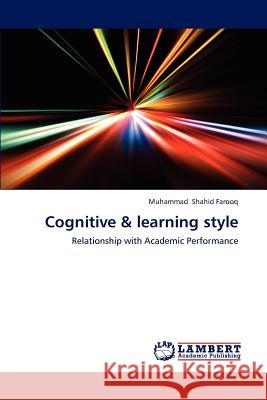Cognitive & Learning Styles » książka
Cognitive & Learning Styles
ISBN-13: 9783659238116 / Angielski / Miękka / 2012 / 308 str.
Learning remains at top priority for educators in all the times, whereas some students become good learners and some do not. The reason behind the disparity in students' performance may result from the diversity of cognitive and learning styles of students besides other demographic factors. The diverse learning needs of learners lead psychologists to focus on the mechanism of learning and to explore ways to make the teaching learning process more effective. The unique cognitive styles and preferred learning styles of learners allow the individuals to optimize their academic strengths. The main purpose of this study was to assess the cognitive styles and learning styles of university students belonging to different areas of specialization. This inquiry was also intended to explore the relationship of these styles with the students' academic performance and other different demographic variables. Regnier's Cognitive Style Questionnaire and Kolb's Learning Style Inventory were used for assessment of cognitive styles and learning styles of university students, respectively. The sample of the study comprised 1023 male and female respondents, belonging to 24 different fields of study.
Learning remains at top priority for educators in all the times, whereas some students become good learners and some do not. The reason behind the disparity in students performance may result from the diversity of cognitive and learning styles of students besides other demographic factors. The diverse learning needs of learners lead psychologists to focus on the mechanism of learning and to explore ways to make the teaching learning process more effective. The unique cognitive styles and preferred learning styles of learners allow the individuals to optimize their academic strengths. The main purpose of this study was to assess the cognitive styles and learning styles of university students belonging to different areas of specialization. This inquiry was also intended to explore the relationship of these styles with the students academic performance and other different demographic variables. Régniers Cognitive Style Questionnaire and Kolbs Learning Style Inventory were used for assessment of cognitive styles and learning styles of university students, respectively. The sample of the study comprised 1023 male and female respondents, belonging to 24 different fields of study.











